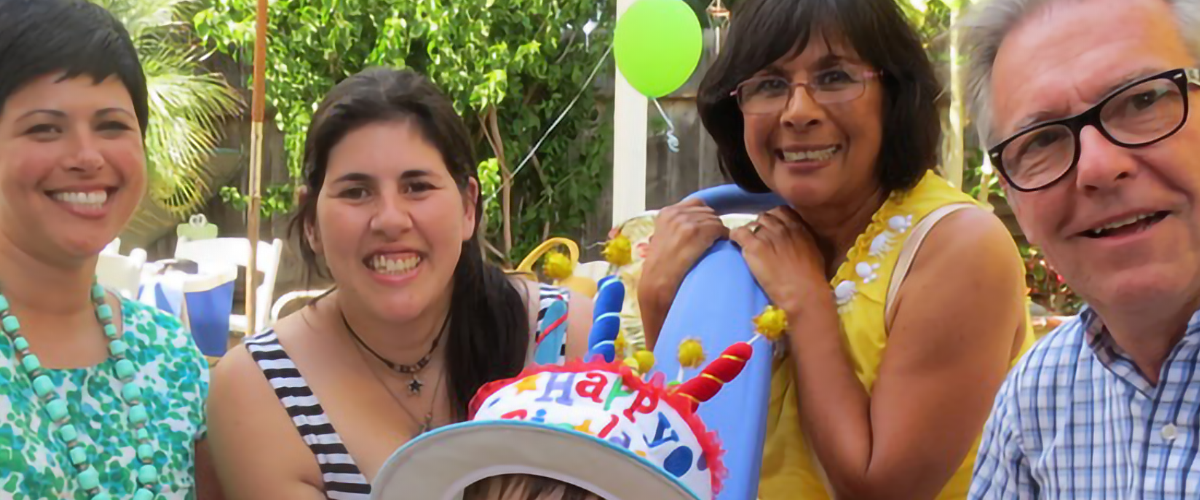
"My kids was my reason for participating in a phase I/II trial of the experimental drug IONIS-DMPKRx," says Zenica Sanford, a 34-year-old mother of four who has adult-onset DM1 and lives in Idaho Falls, Idaho.
Zenica participated in the University of Utah trial site in Salt Lake City. (To learn more about this and other studies and trials, go to Myotonic’s Study and Trial Resource Center on the Myotonic website.)
Three of Zenica’s children also have myotonic dystrophy (DM). Her oldest child, now 12, was diagnosed with juvenile-onset DM1 a year ago, and her 9-year-old son was diagnosed with the juvenile-onset form of the disease at age 2. Her 3-year-old daughter, Andelyne, has the severe, congenital-onset form of DM type 1 (DM1) and is in a study of that condition at the University of Utah. (See Health Endpoints and Longitudinal Progression in Congenital Myotonic Dystrophy in the Current Studies and Trials section of the Study and Trial Resource Center.)
Learning of the Diagnosis
Zenica didn’t realize she had DM herself, though, until 2006, when she was 25 years old and pregnant with her second child. “My brother had been diagnosed, and his doctor recommended that I be tested,” she remembers, although her only symptom back then was some cramping in her hands. “I’m hoping something can help them – or even myself,” Zenica says. “I want to keep up,” she says. “I don’t want the kids to think of Mom as sick and in bed.”
Zenica was one of the very first people to enroll in the Ionis Pharmaceuticals clinical trial to test the first drug that targeted the underlying genetic defect that causes DM1. Participating in a clinical study was a positive experience for her.
“I had heard horror stories about muscle biopsies, but they weren’t that bad,” Zenica says. “It hurts, but my expectations of it were worse. They used local anesthetics, and it wasn’t as painful as I had expected.” The electromyograms felt like a “tingle” in her leg muscle. “Everybody at the trial site was kind, concerned and caring,” she says. But getting to know study coordinator Dr. Missy Dixon has been particularly satisfying. “She’s usually there with me during every procedure,” Zenica says. “I’ve gotten to know her really well, medically and personally. She’s great. It’s always nice to have a comforting face.”
The trial required two overnight hospital stays at the University of Utah. During other visits, the trial reimbursed her for a hotel room conveniently situated near her Utah relatives and convenient to the trial site. The drug trial required tests of physical function, filling out detailed questionnaires, cardiac exams, two muscle biopsies, and some electromyograms, which entail inserting a needle into a muscle.
The Next Chapter
Zenica looks forward participating in future DM1 clinical trials, but she notes that with DM, you may need family support and a certain amount of stamina, and that you need to do your homework on details like reimbursement. “Find out everything about the time commitment and what they will reimburse,” Zenica advises those considering being in a study or trial. In her drug trial, everything has been reimbursed, including mileage, hotel stays and food. However, the research study in which her 3-year-old is participating only reimburses for a particular hotel, one that isn’t convenient for them.
There were times when bad weather and the December holiday season made the three-and-a-half-hour drive to Salt Lake City particularly stressful, Zenica says, but her husband kept encouraging her, and she has had his support with child care. "You need to have family support. But if you have the time and the support, go for it."
Would you like to participate in a research study or clinical trial? Learn more about the process today! Visit the Myotonic Study and Trial Resource Center.

